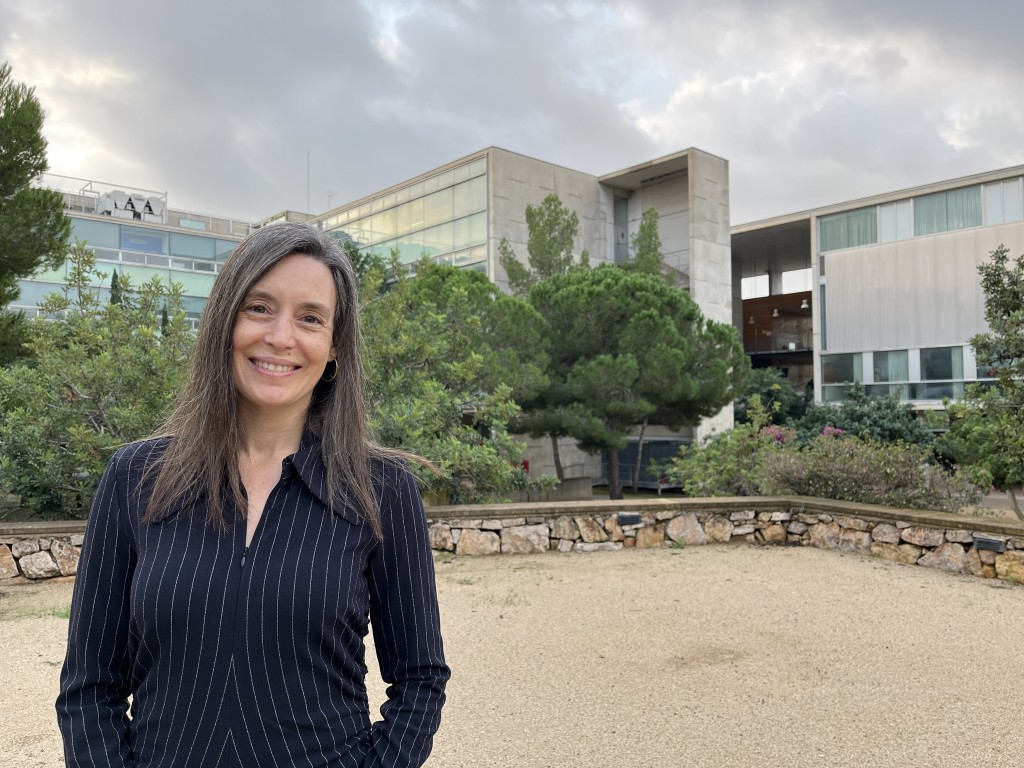Press notes 05/11/2024
Marta Sales-Pardo secures an ERC Synergy Grant to investigate the evolution of neural circuits
Over the next six years, the researcher from the URV’s Department of Chemical Engineering will co-lead a pioneering project to study how these circuits vary across different fly species and understand how they influence the insects’ behaviour

Over the next six years, the researcher from the URV’s Department of Chemical Engineering will co-lead a pioneering project to study how these circuits vary across different fly species and understand how they influence the insects’ behaviour
Dr Marta Sales-Pardo, a researcher in the Department of Chemical Engineering at the Universitat Rovira i Virgili (URV), has been awarded an ERC Synergy Grant, one of the most prestigious international research funding opportunities. This grant, provided by the European Research Council (ERC), aims to promote collaboration among leading research teams to tackle complex scientific challenges. Sales-Pardo will co-lead the project “CircuitEvolution” alongside research teams from the Laboratory of Molecular Biology and the University of Cambridge (United Kingdom) and Rockefeller University (United States). With a total budget of 12 million euros, the research team will decode how neural circuits change with behaviour and determine which aspects of these circuits are conserved across different species.
The project will span six years and focus on the connectomics of various fly species. Connectomics is a field of research that studies and maps neural connections within a brain to create a detailed representation of the “connectome,” which refers to the full set of synaptic connections between neurons. This map allows researchers to analyse how neural networks are structured and function, which is essential for understanding the mechanisms that enable information processing, learning, and complex behaviours.
“To date, the most that has been done is to study the connectome of a single fruit fly specimen using technology developed over the past decade. This involved slicing the brain into very thin sections to create a complete three-dimensional reconstruction of the fly’s brain and identify each neuron and its connectivity,” explains the researcher.
The new project aims to apply this same technology to five fly species similar to the fruit fly but that exhibit clearly distinguishable behaviours, such as preferences for specific fruits or unique mating rituals. The ultimate goal is to map their neural circuits and observe the variations in each species’ brain. The samples will be processed at the University of Cambridge, while Marta Sales-Pardo and her team will be responsible for developing the algorithms to help reconstruct and compare the connectomes and, ultimately, link the differences in connections with behavioural variations that can be tested in vivo at Rockefeller University.
“This project will provide highly valuable data for the scientific community,” emphasized Sales-Pardo, who added that “the work that we intend to do will generate unprecedented resources in the form of new databases that will be made available to neuroscience research and other fields such as evolutionary biology or complex networks.” These findings will have direct implications for the development of artificial intelligence systems inspired by these neural circuits.
https://youtu.be/YqfpxyHdmRQ
